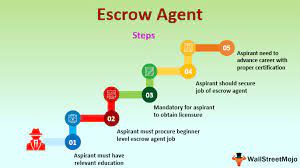Taxes can be a difficult factor to consider as an heir or when planning an inheritance. The term “step-up in basis” aka “stepped-up basis” refers to a tax policy that permits heirs to lower their capital gains taxes. Fortunately, a step up in basis can assist anyone who inherits an asset at death either of spouse or a relative ( stock, bond, rental property, real estate), etc to save a significant amount of money in taxes. This article comprehensively discusses the step-up in basis at the death of a spouse, what real estate assets get this provision and if the revocable trust or irrevocable trusts gets a step-up in basis at death, and how to notify on a rental property following the death of a spouse.
What Is Step Up in Basis at Death?
When an asset’s cost basis is reset for the successor to coincide with the property’s fair market value (FMV) when their benefactor dies, this is known as a step-up in basis.
To further explain, qualified stocks, real estate, mutual funds and other significant assets left to heirs can have their initial cost basis changed under US tax laws. If the asset is sold after the deceased passes it on, this adjustment reduces capital gains taxes.
The basis of an asset is the price the decedent’s paid for the asset. It can be sold if it is left to an heir. Capital gains taxes occur if they sell the asset for more than they paid for it.
Step-up in basis takes into account the asset’s current fair market value if the heir bought it today. If they sell it, capital gains taxes will be either highly slashed or completely avoided.
In fact, if the value of an asset has decreased after the owner’s death, the heirs’ cost basis will decrease.
Moreover, most cost basis modifications after death are step-ups, not step-downs, in actuality. This is due to the fact that financial assets passed down to heirs are frequently long-term investments. Plus financial assets and real estate have good long-term rates of return.
Example of Step Up in Basis at Death
The cost basis of an inherited asset is reset from its purchase (or preceding inheritance) price to the asset’s fair market value on the date of the owner’s death.
Consider the following scenario where your dad passes away and leaves you a home that he originally acquired for $200,000. He bequeathed you the property at a time when its market value had increased to $450,000 from its original $200,000 value. You would be able to benefit from a step-up in basis from $200,000 to $450,000 as a result of this.
If you decide to sell the home, the increase in basis will result in a significant reduction in your capital gains tax liability. Instead of paying capital gains taxes on the difference between $200 and the sale price, the only requirement would be to pay capital gains taxes on the difference between the purchase price and the sale price of $450,000.
You could save a fortune depending on your specific condition with a step-up in basis at death.
What Is Capital Gains Tax?
You probably have found this term once or twice in the early text of this article. Well, capital gains tax is simply the amount you pay on the increase in value of an asset during the time you possessed it. The tax amount is dependent on your income, tax filing status, and the length of time you possessed the asset. It’s vital to understand capital gains tax in order to properly grasp the advantages of a step-up in basis. Capital gains tax applies to any asset sold for a higher price than originally purchased.
Let’s take, for example, you paid $1 for a stock. The stock is worth $5 two years later when you decide to sell it. With the difference of $4, you would pay the long-term capital gains tax rate.
This means the amount of time you keep an asset has an impact on your capital gains tax rate. You will most certainly have to pay taxes on the short-term capital gains rate if you hold an asset for less than a year.
Taxes on short-term capital gains are at the same rate as ordinary income.
However, if you keep the asset for more than a year, you’ll have to pay the long-term capital gain rate, which can range from 0% to 20%. Thus, It’s worth emphasizing that inherited property is always viewed as a potential long-term capital gain.
Debate on Step up Basis at Death Being a Tax Loophole
The step-up in basis option is viewed as a tax loophole by some. Basically, the regulation allows a person to leave large properties to their heirs without having to pay taxes on appreciation.
With this in mind, the Biden administration has proposed a solution to the American Families Plan’s loophole. The newfound tax money will be used to support some of the anticipated infrastructure improvements under this plan. According to the administration, this tax rule mainly benefits the rich who own properties worth more than the $500,000 exemption.
If the proposal passes, an estate will be liable for any taxes due on the increase in property value. Consider the case of someone who paid $300,000 for a home. The house is now worth $1,000,000, and the person has passed away, leaving the property to their heirs. Payments on a capital gain tax of $700,000 must be complete before the successor can benefit from the $1,000,000 step-up in basis.
For the time being, this is just a suggestion from the Biden administration. It may or may not become legal in the next months.
Step up in Basis at the Death of a Spouse
Following the death of a spouse, you may qualify for a step-up in basis, depending on your state. The double step-up in basis rule is available to residents of nine community property states, including California. The rule gives the surviving spouse a step-up in basis on community property, which includes all assets acquired during the marriage excluding inheritances and gifts.
#1 Non-community Property States
Spouses are considered joint tenants with rights of survivorship (JTROS) in every state except those that have community property laws. When a spouse dies, you may be entitled to a step-up in basis for one-half of the property if you receive that treatment. The remaining half of the increased value would be included in the inheritance of the deceased spouse.
This means that in some states, assets owned entirely by the surviving spouse are not eligible for the step-up in basis and jointly owned assets are only eligible for half of the step-up in basis that they would receive in a community property state.
#2. Community Property States
Things work a little differently in a community property state. When the first spouse passes away, the surviving spouse receives a step-up in basis for both ownership portions of the property. A surviving spouse who decides to sell will save money on capital gains taxes as a result.
Residents and non-residents alike can construct community property trusts that qualify owned assets for community property tax treatment, including the double step-up in basis rule, under the federal tax code in Alaska, Kentucky, South Dakota, and Tennessee.
What Assets Get a Step-up in Basis at Death?
The step-up basis tax provision allows real estate owners at death to leave properties to their heirs or spouse at current market value rather than the original purchase price. This is critical for assets that have appreciated in value over time, such as duplexes, multifamily properties, and commercial real estate. However, the IRS does not consider all bequeathed assets equally. Let’s explore which assets qualify for a step-up in basis if they are left to their heirs.
What Real Estate Get Step Up in Basis at Death of Spouse?
The real estate left to the spouse and heirs is eligible for a step-up in basis at death. Among these assets are:
- Multi-family apartment complexes, duplexes, triplexes, and multiplexes
- Medical, garden, and other types of office buildings
- Standalone and strip retail centers
- Industrial and self-storage facilities
- Residential rental properties
- Hospitality properties
The basis of these assets gets to step up only if they are transferred after the owner’s death; Gifted property (rental or not) is transferred at the asset’s original cost basis and does not receive a step-up in basis at the owner or spouse’ death
Other assets that may be eligible for a step-up in basis include:
- Stocks, bonds, exchange-traded funds (ETFs), and mutual funds
- Businesses and equipment
- Assets not held in a retirement account, such as brokerage accounts
- Collectibles, antiques, and art
Assets That Don’t Get a Step-up in Basis at Death
Many conventional financial instruments used to build and preserve wealth do not qualify for a step-up in basis. These are some of them:
- Retirement accounts such as IRAs and 401(k)s
- Pension plans
- Money market accounts
- Tax-deferred annuities
- Certificates of deposit
Because wealth-building tools like IRAs and company-sponsored 401(k)s are so widely used, it’s vital to update your estate plan before you die to ensure that your heirs receive the maximum benefit from these funds. Remember that you gained a tax deduction by contributing to IRAs and 401(k)s, and that money grew tax-free, so your heirs won’t get any extra tax breaks if you leave them untouched after you die.
Notifying a Sale of Rental Property With a Step-up in Basis Following the Death of a Spouse
The tax reporting depends on your personal circumstances. So long as the rental property is kept as community property at the death of a spouse, all interests get step-up in basis to the current fair market value.
In the instance of joint tenancy or tenancy in common, the survivor inherits the decedent’s new stepped-up (or down) basis to add to his or her own basis.
Federal and state regulations govern stepped-up basis and sale taxes.
For post-death depreciation, the IRS said in Revenue Ruling 63-223 that the decedent’s fair market value should be used, if appropriate [and value is not depreciated]
The leased property’s prior depreciation is meaningless. After the property is inherited, the depreciation schedule starts at the new fair market value.
Because your tax position is unique, it is advisable to obtain qualified CPA assistance.
If listed as a rental in Turbotax, the property would undergo decommissioning on death. Then recalculate the amended basis per state legislation and enter the sale in Turbotax with the correct basis.
Do Revocable Trust Assets Get a Step-up in Basis at Death?
Before we go on to determine if revocable trust gets a step-up in basis at death or not we would need to understand what trust generally is as well as what a revocable trust is.
Basically, a trust is a contractual relationship in which one party, the trustor, grants another party, the trustee, the power to hold title to property or assets on behalf of a third party, the beneficiary. Trusts are in place to offer legal protection for the trustor’s assets, to ensure that the transfer of those assets is in accordance with the trustor’s desires, and to save time, lessen paperwork, and, in some situations, avoid or decrease inheritance or estate taxes.
A revocable trust allows the grantor or founder to change, modify, adjust, or cancel its provisions. During the trust’s life, income is paid to the grantor, and property is transferred to the trust’s beneficiaries only after the grantor’s death. A revocable trust is beneficial because it gives the live grantor control over his assets and revenue. The trust’s provisions can be changed, and the trustor’s estate will go to the beneficiaries upon death. The trustor can amend or dissolve a revocable trust at any moment during their lifetime.
So here’s the big question; Does revocable trust gets step up in basis at death?
Definitely yes, it gets a step-up in basis at death since revocable trust is a flexible type of trust. To avoid any unexpected issues regarding whether assets are eligible for a step-up in basis following the owner’s death, it’s essential to consult an experienced tax, financial, and estate professional.
Do Irrevocable Trusts Assets Get a Step-up in Basis at Death
In contrast to a revocable trust, an irrevocable trust cannot be changed, adjusted, or canceled without the grantor’s beneficiary’s consent. This means that as soon as the beneficiary becomes the signatory to the assets, the grantor can’t have access to it except with the permission of the beneficiary.
Therefore, irrevocable trusts cannot get step-up in basis at death because of their static and non-flexible disadvantage. However, it is advisable that you consult a professional to confirm whether irrevocable trusts get a step up in basis at death.
Conclusion
Bottom line is that a step-up in basis is one of the best strategies to protect and convey wealth to your heirs because it reduces capital gains taxes on certain inherited assets. But, not all assets qualify for this tax status, especially if kept in an irrevocable trust.
So if you plan to inherit any of the above assets listed, you should consult your tax and financial advisors to verify which assets qualify for a step-up in basis. More so, If you plan to leave assets to your heirs on a stepped-up basis, discuss this with skilled professionals to avoid capital gains tax implications.
FAQs
Do I get a step-up in basis on my house when my spouse dies?
When one spouse dies, the asset’s cost basis is stepped up for the surviving spouse. So, yes, you can get a step-up in basis on your house after your spouse’s death.
What happens to an irrevocable trust when the grantor dies?
An irrevocable trust continues to exist after the grantor dies until the successor trustee distributes all of the assets. But irrevocable trusts can’t get step-up in basis at death in the case where the assets value increases than when it was first acquired.
What is the difference between a revocable and irrevocable trust?
A revocable trust allows for changes to the terms at any time. An irrevocable trust doesn’t without the beneficiaries’ consent.
How does a step-up in basis work?
Step-up in basis are processes taken to increase the value of a property or asset. However, this can only take place after the death of the owner. Meanwhile, this also applies to the spouse.
Is step-up in basis automatic?
Notably, the step-up in basis is not automatic. If no financial advisor managed the funds, you’ll need to fill out the paperwork with the custodian.
{
“@context”: “https://schema.org”,
“@type”: “FAQPage”,
“mainEntity”: [
{
“@type”: “Question”,
“name”: “Do I get a step-up in basis on my house when my spouse dies?”,
“acceptedAnswer”: {
“@type”: “Answer”,
“text”: “
When one spouse dies, the asset’s cost basis is stepped up for the surviving spouse. So, yes, you can get a step-up in basis on your house after your spouse’s death.
“
}
}
, {
“@type”: “Question”,
“name”: “What happens to an irrevocable trust when the grantor dies?”,
“acceptedAnswer”: {
“@type”: “Answer”,
“text”: “
An irrevocable trust continues to exist after the grantor dies until the successor trustee distributes all of the assets. But irrevocable trusts can’t get step-up in basis at death in the case where the assets value increases than when it was first acquired.
“
}
}
, {
“@type”: “Question”,
“name”: “What is the difference between a revocable and irrevocable trust?”,
“acceptedAnswer”: {
“@type”: “Answer”,
“text”: “
A revocable trust allows for changes to the terms at any time. An irrevocable trust doesn’t without the beneficiaries’ consent.
“
}
}
, {
“@type”: “Question”,
“name”: “How does a step-up in basis work?”,
“acceptedAnswer”: {
“@type”: “Answer”,
“text”: “
Step-up in basis are processes taken to increase the value of a property or asset. However, this can only take place after the death of the owner. Meanwhile, this also applies to the spouse.
“
}
}
, {
“@type”: “Question”,
“name”: “Is step-up in basis automatic?”,
“acceptedAnswer”: {
“@type”: “Answer”,
“text”: “
Notably, the step-up in basis is not automatic. If no financial advisor managed the funds, you’ll need to fill out the paperwork with the custodian.
“
}
}
]
}
Related Articles
- REVOCABLE TRUST: A Comprehensive Guide (+ How it Works)
- ESTATE ADMINISTRATION: Fees, Attorney, Checklist & Best Practices (All You Need)
- REVOCABLE TRUST: What is Living Revocable Trust?
- ESTATE PLANNING ATTORNEY: Cost and How to Find an Estate Lawyer
- STEP UP BASIS AT DEATH: Definition, and Eligibility (+ Helpful Tips)
- What Is A Testamentary Trust: Definition, Examples & How It Works
- Trust Fund: How to set up a trust fund bank account in 2022- Expert Guide
(Xanax)






